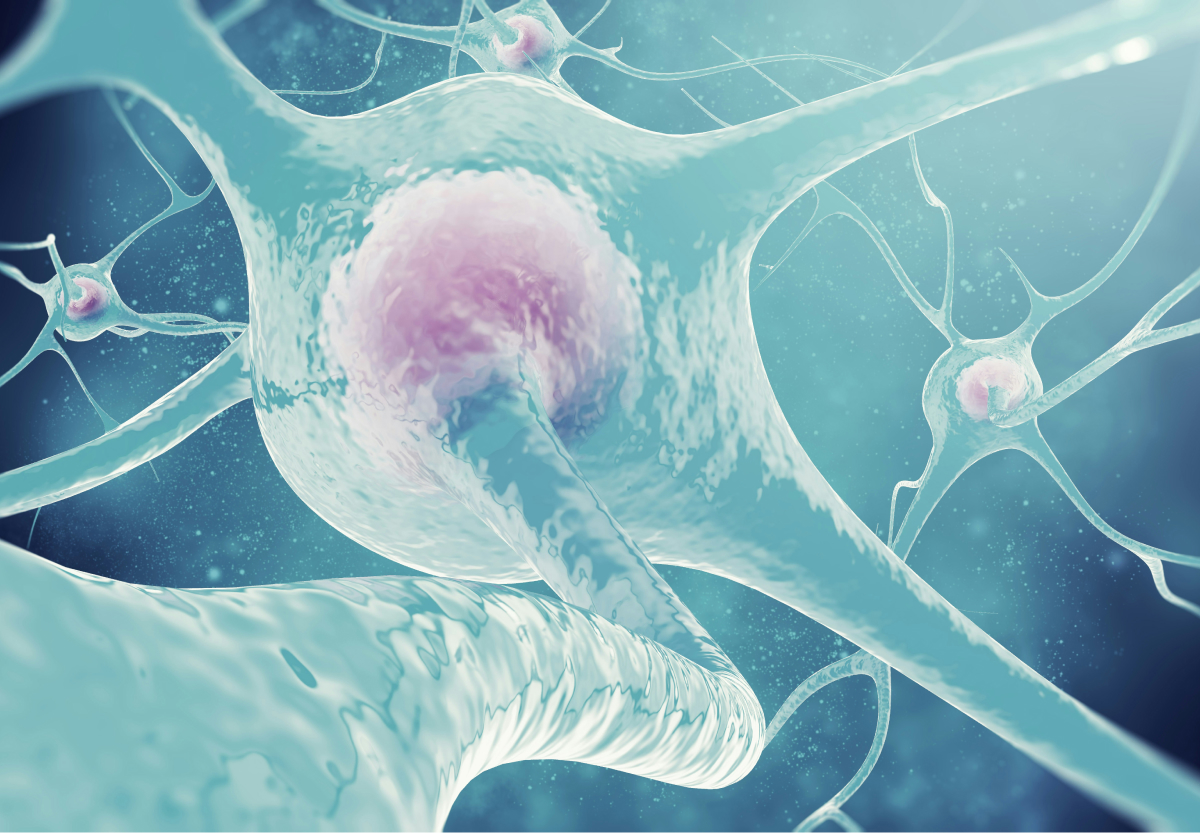What is Type 3 Diabetes?

Key Takeways
Type 3 diabetes is a term some researchers use to describe a possible connection between Alzheimer’s disease and diabetes. It suggests that Alzheimer’s may be a form of diabetes due to shared molecular and cellular features with type 1 and type 2 diabetes, particularly insulin resistance in the brain.
Some also use the term to describe individuals with type 2 diabetes who later develop Alzheimer’s or dementia. However, remember that while it’s a common term, type 3 diabetes is not an official medical diagnosis, and its use remains controversial. More research is needed to determine whether Alzheimer’s should be classified as a diabetes-related condition.
In this article, we’ll explore the relationship between diabetes and Alzheimer’s, including the latest research on their potential connection. Keep reading to learn more.
What is Diabetes Mellitus?
As we’ve mentioned before, diabetes mellitus is a group of metabolic diseases that involves chronic hyperglycemia caused by the body’s inability to produce or respond to insulin, or both.
In a nutshell: the food we eat is converted into glucose in our bodies. This glucose is sent into the bloodstream. Insulin, a hormone released by the pancreas, acts as a key that allows the glucose from our blood into our cells to be used up as energy. If we can’t make or use insulin, the glucose stays in our blood and causes a number of serious health problems. The most common types are type 1, type 2, and gestational diabetes.

Type 1 Diabetes
Type 1 diabetes is thought to be caused by an autoimmune reaction in the body that destroys the cells in the pancreas that produce insulin. Type 1 diabetes is not currently preventable, and is most often diagnosed in children, teens, and young adults. About 5 to 10 percent of people with diabetes have type 1.
Type 2 Diabetes
About 90 to 95 percent of people with diabetes have type 2. People with type 2 diabetes can’t respond properly to the insulin their body makes, which is called insulin resistance. Type 2 diabetes is most often diagnosed in adults, but it is more commonly being diagnosed in children, teens, and young adults.
Type 2 diabetes can be prevented with certain lifestyle changes such as frequent exercise, healthy eating, and weight management.
Gestational Diabetes
Gestational diabetes develops in people who are pregnant and who have never had diabetes. It is caused by the body’s inability to make enough insulin during pregnancy. Gestational diabetes affects 2 to 10 percent of pregnancies per year in the United States. It typically doesn’t have any symptoms, and usually goes away after birth of the baby.
Gestational diabetes does increase the risk for development of type 2 diabetes later in life, both for the pregnant parent and the baby. It can also increase the risk of child obesity and other health problems for the baby.
What is Alzheimer’s Disease?

Alzheimer’s disease is a progressive neurological condition that causes the brain to shrink and brain cells to die, affecting the parts of the brain that control thought, memory, and language. Alzheimer’s disease is the most common type of dementia.
The symptoms of Alzheimer’s typically begin with mild memory loss, which gets worse as the disease progresses. People with Alzheimer’s may experience difficulty handling familiar tasks, impaired judgment, changes in mood and behavior, and of course, the memory loss that interferes with their ability to carry out daily activities.
About 6.9 million people in the United States aged 65 or older have Alzheimer’s disease as of 2024. Of those, 73 percent are 75 years old or older. There is currently no known cure for Alzheimer’s.
The progression of symptoms may be slowed in the early stages by treatment options like medication, or even by addressing risk factors like the Apoe4 gene before it presents at all. However, with disease progression, complications from the loss of brain function will eventually result in death.
How are Alzheimer’s and Diabetes Connected?
Research has uncovered many links between Alzheimer’s and diabetes, prediabetes, or even just consistently high blood sugar.
Studies show that type 2 diabetes may increase your risk for Alzheimer’s disease, dementia, and cognitive impairment. Research says this increased risk could be linked to chronic hyperglycemia, oxidative stress, increased inflammation, and microvascular disease. It’s important to note that type 2 diabetes does not cause Alzheimer’s, and you don’t have to have diabetes to get Alzheimer’s, but it has been shown to enhance its progression.
Obesity can cause a three-fold increase in the risk of Alzheimer’s disease, even for those who don’t have type 2 diabetes. People who are overweight (but not obese) and who don’t have type 2 diabetes have a two-fold increase for developing Alzheimer’s. This raises questions about how obesity may impact Alzheimer’s, independent of type 2 diabetes. Obesity is also an independent risk factor for developing type 2 diabetes.
Dementia and Type 2 Diabetes
Type 2 diabetes mellitus is also a risk factor for a condition called vascular dementia. This condition involves abnormalities in the brain that cause changes in memory, thinking, and behavior. It is caused by different conditions that interrupt the supply of blood and oxygen to the brain, damaging blood vessels. Vascular dementia can occur on its own, or it can be a part of a different condition, including Alzheimer’s.
Some researchers have proposed the term “type 3 diabetes” for Alzheimer’s because it relates to a chronic insulin resistance and insulin deficiency state in the brain. Many key aspects of central nervous system degeneration that are seen in Alzheimer’s disease can be brought on by impaired insulin signaling. An impaired ability to respond to insulin can be present in just one or two organs but not in others, and a common complication of Alzheimer’s disease is impairment in the brain’s ability to metabolize glucose.
Some abnormalities of insulin deficiency in Alzheimer’s also resemble ones seen in type 1 diabetes. These include abnormalities in insulin-like growth factor-1, or IGF-1, which is important for the function of islet cells, which are the cells that produce insulin.
As we’ve seen, there are many similarities in the pathogenesis of both diabetes mellitus and the development of Alzheimer’s disease. These similarities have led researchers to propose that Alzheimer’s should be thought of as a third type of diabetes. However, type 3 diabetes is not widely accepted by the healthcare community and is not an official diagnosis.
Type 3 Diabetes vs. Type 3c Diabetes
Type 3 diabetes is a different term from type 3c diabetes, aka T3cDM. T3cDM refers to a condition called pancreatogenic diabetes, which is a form of diabetes caused by disease of the exocrine pancreas. While there isn’t a universally accepted criteria for the diagnosis of T3cDM, a diagnosis is typically made in patients who meet these three criteria:
- They have a disease of the exocrine pancreas
- They fit the diagnostic criteria for diabetes
- Their diabetes is secondary to their exocrine pancreatic disease
The exocrine pancreas is a source of enzymes that are essential for digestion. Its function is tightly regulated by the neuroendocrine system. When it becomes diseased, this can cause secondary damage to the endocrine pancreas, which ultimately leads to diabetes.
How To Reduce Your Risk

Studies show that diabetes increases the risk of dementia by 60 percent in both men and women.
Alzheimer’s and diabetes also share some risk factors. These can include:
- A family history of diabetes or Alzheimer’s disease
- High blood pressure (hypertension) or cardiovascular disease
- High metabolic stress levels, including oxidative stress and inflammation
- Being obese or overweight
- Having certain health conditions like polycystic ovarian syndrome (PCOS)
5 Tips to Reduce Your Risk
Luckily, there are some ways to reduce the risk of Alzheimer’s and diabetes. Here are 5 tips to reduce your risk:
1. Follow a Heart-Healthy Dietary Approach
Like diabetes, studies show that people with cardiovascular disease have a higher risk of developing Alzheimer’s disease. Your diet is a crucial component of your heart health. Focusing on foods that are high in fiber, like legumes, vegetables, fruits, and whole grains, can help reduce blood sugar, blood pressure, and cholesterol, all of which benefit heart health.
Limiting simple carbohydrates like refined sugars, white rice, and bread products that contain white flour can also help you maintain a healthy blood sugar, which reduces the risk of diabetes and cardiovascular disease. Focusing on heart-healthy oils, like extra-virgin olive oil, also benefits your heart health. Studies show that it may improve cardiovascular health by preventing diabetes, obesity, and insulin resistance.
2. Address Underlying Health Conditions
As mentioned earlier, conditions like diabetes, PCOS, and obesity are associated with an increased risk of dementia, cognitive decline, and Alzheimer’s disease. Discuss management of these conditions with a qualified health team.
3. Reduce Stress
Studies show that chronic stress is linked to an increased risk of Alzheimer’s disease, though it isn’t exactly clear why. It may have to do with cortisol, a hormone that is released during stress. A buildup of cortisol is also often associated with Alzheimer’s patients and may exacerbate symptoms and contribute to the progression of the disease. Cortisol has also been shown to lead to insulin resistance, which can increase your risk of diabetes.
A healthy diet, consistent physical activity, a yoga practice, spending time outside, limiting caffeine and alcohol, practicing meditation, and connecting with loved ones are all things you can try to manage your stress levels.
4. Get Enough Sleep
Some studies suggest that a consistent lack of sleep during middle age may increase the risk of dementia and Alzheimer’s later in life. Sleep also has an effect on your blood sugar: regularly getting less than seven hours of sleep a night can increase insulin resistance, increase depression and anxiety, make it harder to maintain a healthy weight, and negatively affect your heart health — all of which have been linked to an increased risk of Alzheimer’s.
5. Monitor Your Blood Glucose Levels
Poor glucose control has been shown to increase your risk of dementia, Alzheimer’s disease, and cognitive impairment. Monitoring your glucose with a tool like a continuous glucose monitor can give you insight into the highs and lows of your blood sugar.
Find the right Nutrisense programto turn insight into progress.
Work 1:1 with a Glucose Expert at Nutrisense

Research has shown that diabetes and insulin resistance can increase the risk of Alzheimer’s disease and dementia. Because of the similarities in the pathogenesis of these two conditions, some researchers have even proposed that Alzheimer’s should be considered a type of diabetes called type 3. While type 3 diabetes isn’t yet accepted by the medical community, the link between diabetes and Alzheimer’s is well documented.
Monitoring blood sugar is an essential step in understanding your health, and a tool like a continuous glucose monitor (or CGM) can provide real-time insights into how your diet, exercise, and lifestyle impact your glucose levels. However, data alone isn’t enough—knowing how to interpret and act on that information is key. This is where glucose-certified dietitians can play a crucial role.
With Nutrisense, you can choose to work 1:1 with a glucose expert from a team of registered dietitians and credentialed nutritionists via insurance-covered video calls. Our experts help you understand your glucose patterns, make informed dietary choices, and create sustainable lifestyle changes to support your overall health and well-being, and prevent and manage conditions like diabetes.
Go Beyond Glucose Data with Nutrisense
Your glucose can significantly impact how your body feels and functions. That’s why stable levels are an important factor in supporting overall wellbeing. But viewing glucose isn't enough. Nutrisense, you’ll be able to learn how to use your body's data to make informed lifestyle choices that support healthy living.
One-to-one coaching
Sign up to access insurance-covered video calls to work with a glucose expert: a personal registered dietitian or certified nutritionist who will help tailor your lifestyle and diet to your goals.
Monitor and measure what matters
With the Nutrisense CGM Program, you can monitor your glucose with health tech like glucose biosensors and continuous glucose monitor (CGM)s, and analyze the trends over time with the Nutrisense App. This will help you make the most informed choices about the foods you consume and their impact on your health.
Find your best fit
Ready to take the first step? Start with our quiz to find the right Nutrisense program to help you take control.

Amanda is a Nutrition Manager and Registered Dietitian, with a Masters in Dietetics from Stephen F. Austin State University. Originally from south GA, she got her undergrad degree from Texas Tech University. She worked at a hospital in Fort Worth, TX, for 4 years as a dietitian, counseling those living with HIV.




